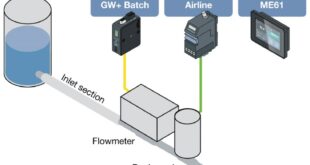Manufacturers navigating the Coronavirus pandemic need to take stock of the best way ahead as the government prepares to reduce some areas of support.
UK chartered accountants and business advisers, MHA Carpenter Box, says that while the headlines have been about a gradual rolling back of the Coronavirus Job Retention Scheme (CJRS), which closes at the end of June for new applicants, government loan schemes. could act as a dampener on future innovation.
“The focus has been on reducing support for CJRS, but HMRC has also confirmed that receiving a Coronavirus Business Interruption Loan Scheme (CBILS) or a Bounce Back Loan could disqualify an SME for all R&D tax relief,” says Andrew Neuman, Client Service Director at MHA Carpenter Box.
“This presents many SMEs with a dilemma if R&D tax relief is a vital tool to maintaining adequate cashflow, especially for start-ups. However, if businesses lack sufficient cash reserves to survive, then CBILS may be the only option and they will need to forego the benefits of the R&D incentive.
“However, not all is entirely lost, because it will still be possible for businesses using CBILS support to access R&D relief under the R&D Expenditure Credit (RDEC) scheme as this is not classed as state aid.”
RDEC provides 10p tax relief for every pound of qualifying spend, although it is significantly less generous than R&D tax relief, which offers 25p in the pound if the company makes a profit, and 33p if it makes a loss.
Andrew Neuman continued: “Unfortunately, for many companies it’s a question of taking a loan to stay in business and foregoing the benefit of R&D tax incentives. The concern is that once the pandemic abates and businesses begin to recover, the legacy of today’s vital government support could be to dampen innovation at a time when we most need it as a nation.
“It is, therefore, vital to take appropriate professional advice on this area as the EU state aid rules and restrictions are extremely complicated.”
 Engineer News Network The ultimate online news and information resource for today’s engineer
Engineer News Network The ultimate online news and information resource for today’s engineer




